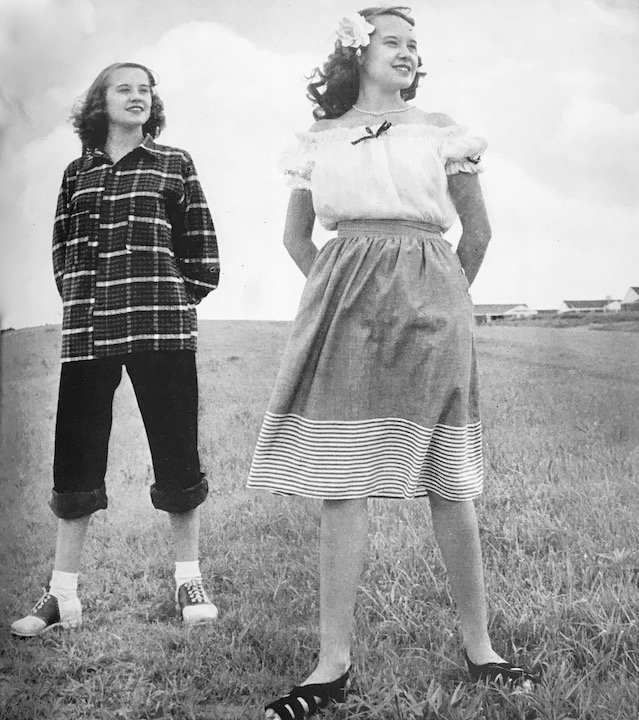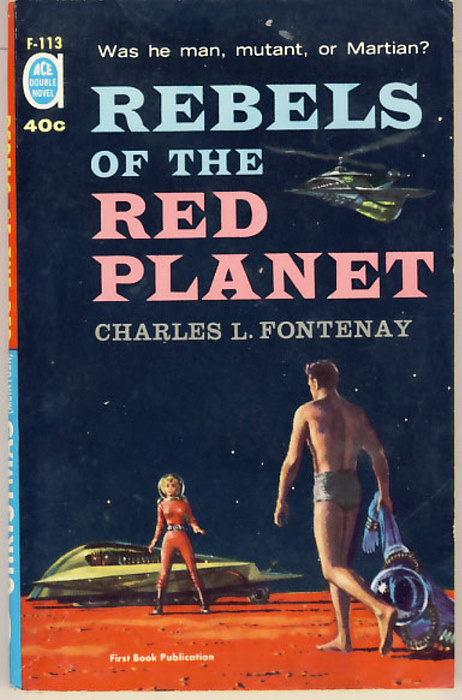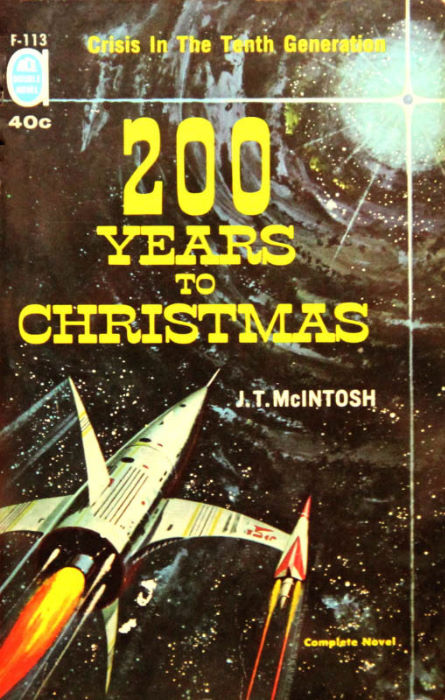
by Gideon Marcus

God help me, I've found a new medium for my science fiction addiction.
Before 1950, I was strictly a toe-dipper in the scientifiction sea. I'd read a few books, perused a pulp now and then. Then Galaxy came out, and I quickly secured a regular subscription to the monthly magazine. After I got turned onto the genre, I began picking up books at the stores, occasionally grabbing copies of F&SF, Imagination, Astounding, and Satellite, too. By 1957, my dance card was pretty full. I was reading up to seven magazines a month, and I'd already filled a small bookcase with novels.
Then I started this column.
Well, I couldn't very well leave magazines or books unbought. How then could I give an honest appraisal of the genre as a whole? By 1960, I was up to two large bookcases – one for magazines, and one for books. For me, the magazine bust of the late 50's was something of a blessing: fewer digests to collect!
I might have been all right with this load, juggling work, family, books and magazines. But then I discovered Ace Doubles.
Occupying that niche between single novels and story collections, Ace Doubles are two short novels bound back to back. It's a format that's been around since 1952, but I generally ignored them. I figured the material was either rehashes of magazine serials, or stuff too mediocre to warrant its own release.
I wasn't far off the mark, but at the same time, after plowing through a few of them, I determined that there was often solid entertainment to be had amongst the pages of these two-headed beasts. And so I start on my third set of bookshelves…and my first review of an Ace Double: serial number F-113.

Let's call Charles Fontenay's Rebels of the Red Planet the headliner. It is, after all, the longer of the two books. The set-up is interesting: the spaceline Marscorp has a stranglehold on the Martian colonies, controlling all imports of food and other needed supplies. The Terran government, in complicity with Marscorp, has forbidden any attempts to develop alternatives to Earth-supplied goods. Nevertheless, two movements have continued in a clandestine fashion. One seeks to cultivate humanity's latent psychic powers to teleport supplies from Earth. Another conducts ghastly genetic experiments on unwilling subjects, attempting to create a race of humans that can survive in Mars' frigid, scarcely atmosphered environment.
Enter Maya Cara Nome, an Earth agent dispatched to infiltrate the Martian rebellion and spike their works. She's a most engaging heroine, clever and strong, and I am always thrilled to read a female protagonist – they are so rare, you see. Rebels is the story of Nome's attempts to assess the progress of the rebellion's efforts. Is her fiancee, the ambitious and intolerant Nuwell Eli, help or peril? And just who is this mysterious Dark Kensington, a rebel scientist with startling powers and a 25-year hole in his memory? Are the ugly Martian natives truly degenerate? Or have they shunned their ancestors' civilization for a reason?
You'll have to read it to find out. It's quite competently done, a curious mix of pulp and modern styles, though the "science" rather strains the credulity. I tend to be bored by Mars as a setting, but Fontenay brings the red planet vividly to life.
Three stars.

Now flip the book, and what do we have? Definitely not a novel, clocking in at just 80 pages. However, J.T. McIntosh's 200 Years to Christmas is not a bad novella. In fact, I'd even consider it as a contender for the 1961 Galactic Star (the competition is thin), but it was actually first published in a British magazine (Science Fantasy) back in 1959. Perhaps Journey writer, Ashley Pollard can set me straight on this.
In any event, McIntosh is a pretty reliable writer of pretty decent stuff. Christmas involves one of my favorite set-ups: it takes place on a slower-than-light colony ship whose trip time is several centuries. I would expect that society on such a closed community would become stagnant and stultified in short order.
McIntosh has a different take. On the colony ship, culture cycles in wild shifts from repressive to liberal in intervals of considerably less than a generation. Christmas opens up as a libertine era is just beginning to wane. Orgies and hedonism slowly give way to religious puritanism. At the peak of that conservative era, shipboard life resembles Salem Massachusetts in its severity. It is only after things go too far that the pendulum shifts back toward personal freedom. But will the events of that repressive period be remembered in ten years?
Christmas is a timely piece. America has just gone though eight years of relative stability, an era of prosperous conservatism. Now, the tides have shifted. We have a hawkish, ambitious new President as well as a restive populace straining at the shackles imposed by precedent. Will the 1960s be as tumultuous as the 1950s were calm? Will they show that McIntosh's fast tempo for societal change isn't implausible?
As for the actually quality of the novella, it is not a classic for the ages; but it is well-crafted and characterized. It certainly garners three stars.
Thus, in sum, Ace Double F-133 provides 240+ pages of good entertainment. These are stories at least as good as what I'm finding in my monthly magazine subscriptions, and in an attractive package to boot.
And that means the amount of time before my house comprises nothing but floor-to-ceiling bookshelves has just been reduced yet again…
